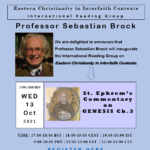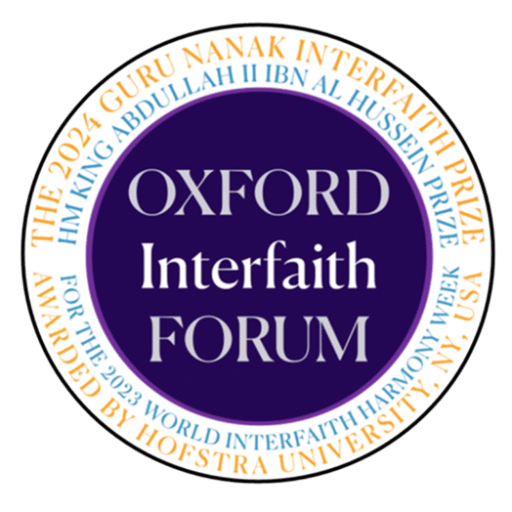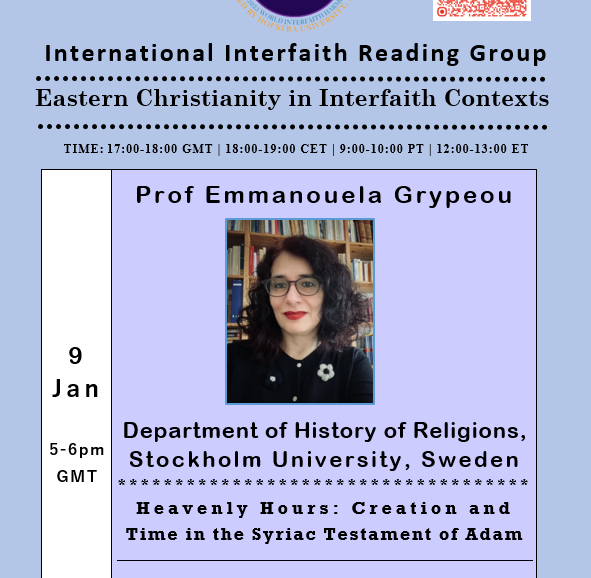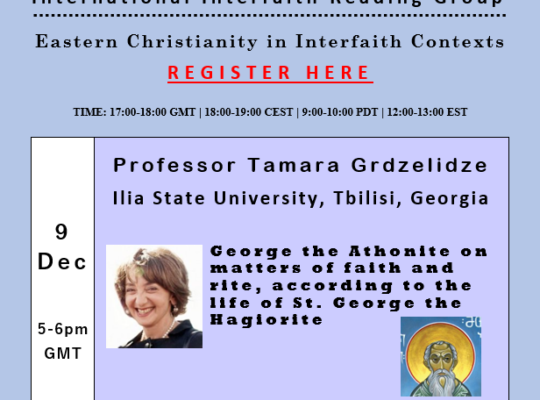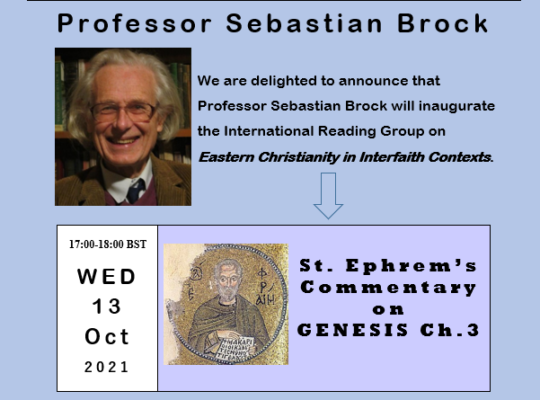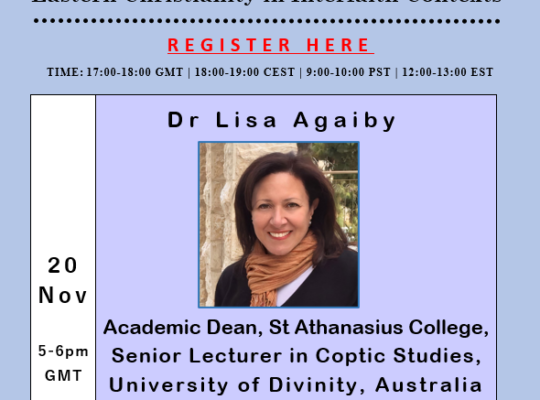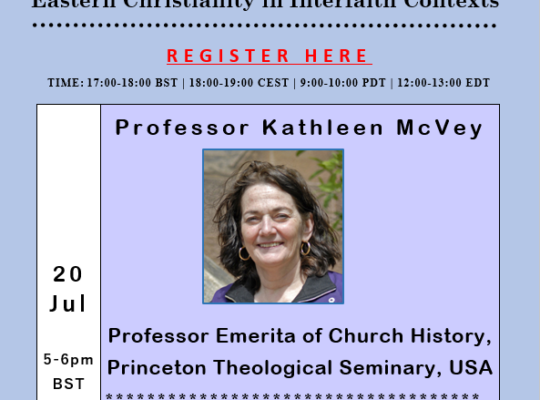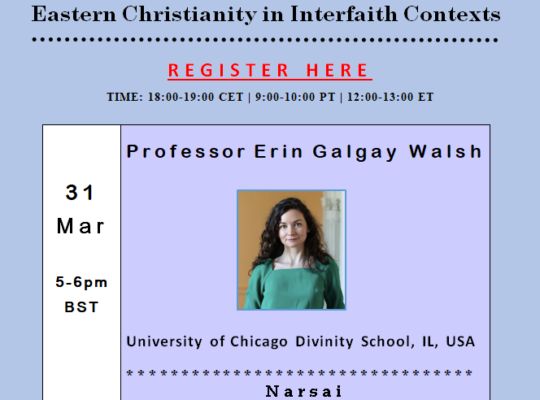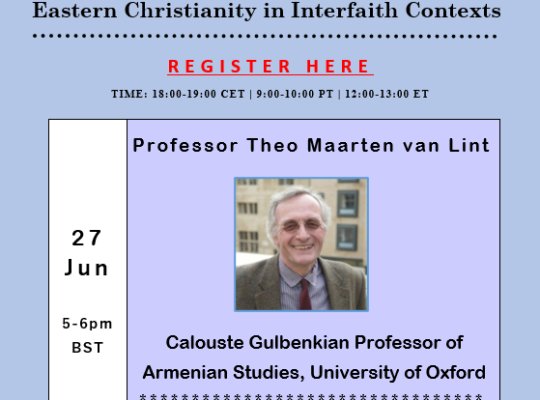9 January, 2025
We are deeply honoured to welcome Professor Emmanouela Grypeou, Associate Professor at the Department of History of Religions at Stockholm University, Sweden, to lead a session of the Eastern Christianity in Interfaith Contexts Reading Group.

Here are the details of this fascinating event.
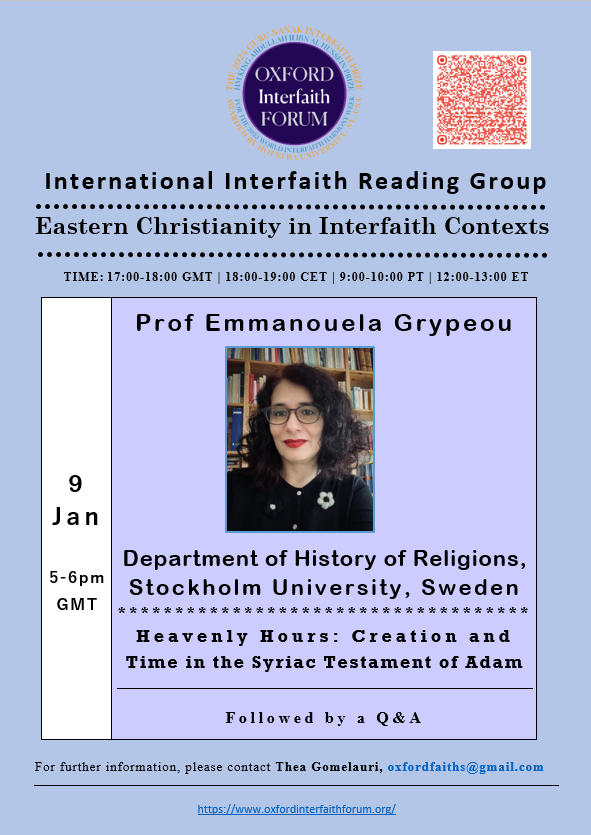
Title: Heavenly Hours: Creation and Time in the Syriac Testament of Adam
Abstract: The text known as the ‘Horarium’ describes the hours of the night and/or day in which elements of the creation pray and give praise to God. The text attests to significant Jewish and Christian biblical and para-biblical traditions, including liturgical, angelological, magical, and demonological elements. This popular and influential text from Late Antiquity is attested in a complex manuscript and recension tradition and is preserved in Greek, Syriac, Armenian, Ge‛ez, Georgian, and Arabic. As it also forms part of the Syriac ‘Testament of Adam’, it has been regarded by certain scholars as a Christian work originally composed in Syriac. However, a Jewish provenance in the Second Temple period has also been suggested. In this paper, I will re-consider the issue of its provenance as well as Sitz im Leben, and I will argue that we need to place this textual tradition in the context of Eastern exegetical reflections about time as part of the creation in connection with monastic interest and contemplation about the heavenly liturgy, daily worship and set hours of prayer.
Speaker: Professor Emmanouela Grypeou, Associate Professor at the Department of History of Religions at Stockholm University, Sweden
Speaker’s Biography: Emmanouela Grypeou is an associate professor of the History of Christianity at Stockholm University in Sweden. Previously, she has held research and teaching positions at the University of Erfurt, Humboldt University Berlin, University of Cambridge, University of Oxford, and as a visiting scholar at the University of Virginia. Her research focuses on the interactions between Eastern Christianity with Judaism and Early Islam respectively, as well as on apocalypticism and eschatology.
Chair: Professor Sebastian Brock, FBA, University of Oxford, UK.
Date: 9 January, 2025
Time: 17:00-18:00 GMT | 9:00-10:00 PT | 12:00-13:00 ET
Venue: online
If you would like to join the Eastern Christianity in Interfaith Contexts Reading Group, please sign up here.
Recording of the Session
Related Sessions
- The Peshitta and the Making of the Antioch Bible
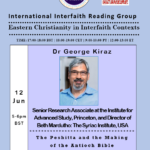
- Narsai’s Memra 49, on Adam and Eve: O Instructive Fault!
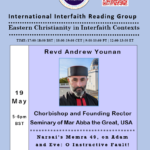
- Basil of Caesarea and Gregory of Nazianzus on the Problem with the Devil
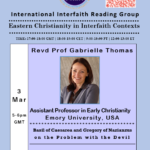
- Byzantine Aristocrat, Monk, Mystic and Dissident: Symeon the New Theologian (949-1022)
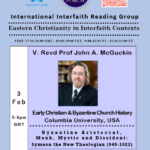
- Heavenly Hours: Creation and Time in the Syriac Testament of Adam
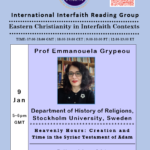
- The Monastic Homilies of Isaac of Antioch
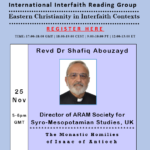
- Christian Trees
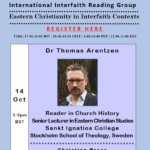
- Dialogue and Fire in a Fragmentary Syriac Martyrdom Narrative
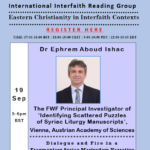
- The Origins of the First Anti-Jewish Good Friday Hymns
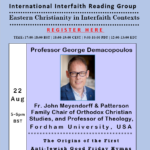
- Finding a Home: The West Syriac Context of the Clementine Epistles on Chastity
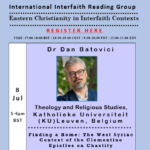
- Who was Mary, the Blessed Virgin and Mother of God? A Byzantine hagiographical narrative by the ninth-century Monk Epiphanios
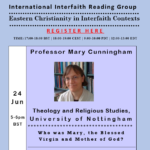
- Nikos Kazantzakis and Orthodox Christianity
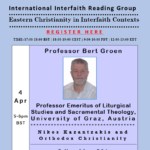
- The Miracle of Pilgrimage: A Coptic Journey to the Holy Land During the Ottoman Period
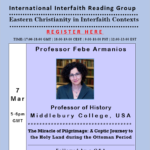
- Setting the Stage: The Rose of Performance in Studying Late Ancient Hymnody
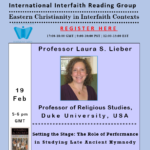
- Ephrem the Syrian and a New Beginning in Syriac Poetry
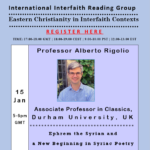
- A Jew Reads the Gospels in Syriac: Azariah de Rossi’s Critique of the Vulgate (1577)
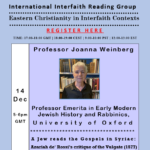
- The Manuscript Project at the Coptic Monastery of St Paul the Hermit at the Red Sea, Egypt
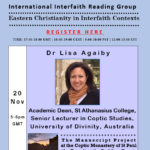
- Mary’s Ordeal: A Syriac Narrative Poem on Many and Joseph
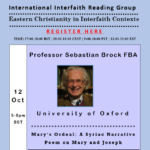
- Resurrection of the Human Body according to John of Dara’s Mimro I:4
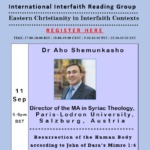
- Gregory of Nyssa: On the Human Image of God
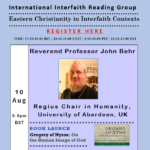
- ‘Conception by ear’ and Redemption of the Human Sensorium in Ephrem’s Thirty-fifth Madrasha on the Church
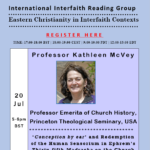
- From Edessa to South Arabia and Back: The Syriac Story of Bishop Paul and Priest John and Models of Sanctity in the Medieval Middle East
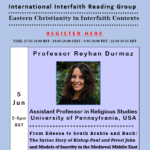
- Wrestling with Calculating-Thoughts: Mental Training according to Evagrius of Pontus
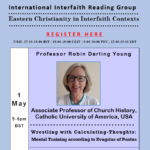
- Returning the Ticket: God and Evil in the Brothers Karamazov
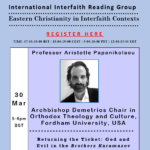
- Ecumenical Patriarch Athenagoras: an Orthodox Dialogue with Islam
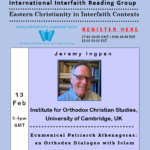
- Matta el-Meskin/Matthew the Poor: a ‘Contemporary Desert Father’ on Christian Unity
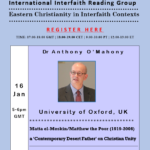
- Signs of Miraculousness: The Inimitability of Jacob of Serugh’s Teaching
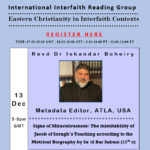
- Epistolary Style in Coptic Letters from the Late Third Century to the Early Fifth Century
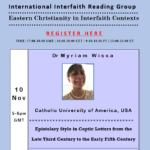
- Sarah and the Akedah: a Syriac Narrative Poem on Genesis 22
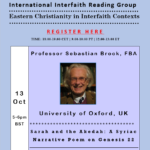
- The Paterik of the Kyivan Caves Monastery: Monk Polikarp in Discourse 14
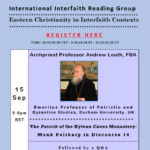
- Jacob of Sarug on the Canaanite Woman (Mt 15:21-28, Mk 7:24-30): Biblical Storytelling and Models of Faith
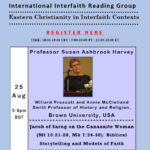
- Commemorating the saints at Turfan: Mart Shir and Mar Barshabba
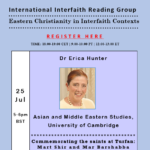
- The Opening Prayers of Saint Gregory of Narek’s Book of Lamentations
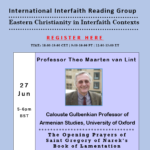
- Alexander Schmemann on Theotokos vis-à-vis Kali a Hindu Mother Goddess
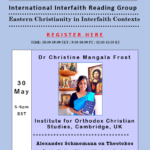
- Enoch and the Fallen Angels in the Ethiopian Tradition
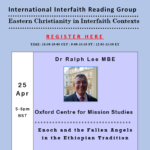
- Narsai on the Virgin Mary
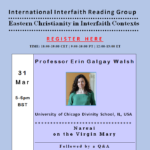
- An Anonymous Syriac Dialogue between Mary and the Angel
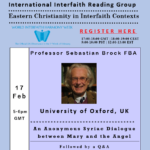
- Dadisho of Qatar: Questioning the Desert Fathers
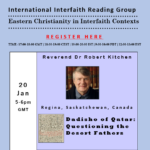
- George the Athonite on Matters of Faith and Rite, According to the Life of St George the Hagiorite
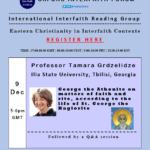
- Temple, Shekhinah and Prayer in Isaac of Nineveh’s III.VIII
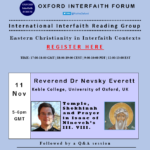
- St. Ephrem’s Commentary on Genesis Ch.3
